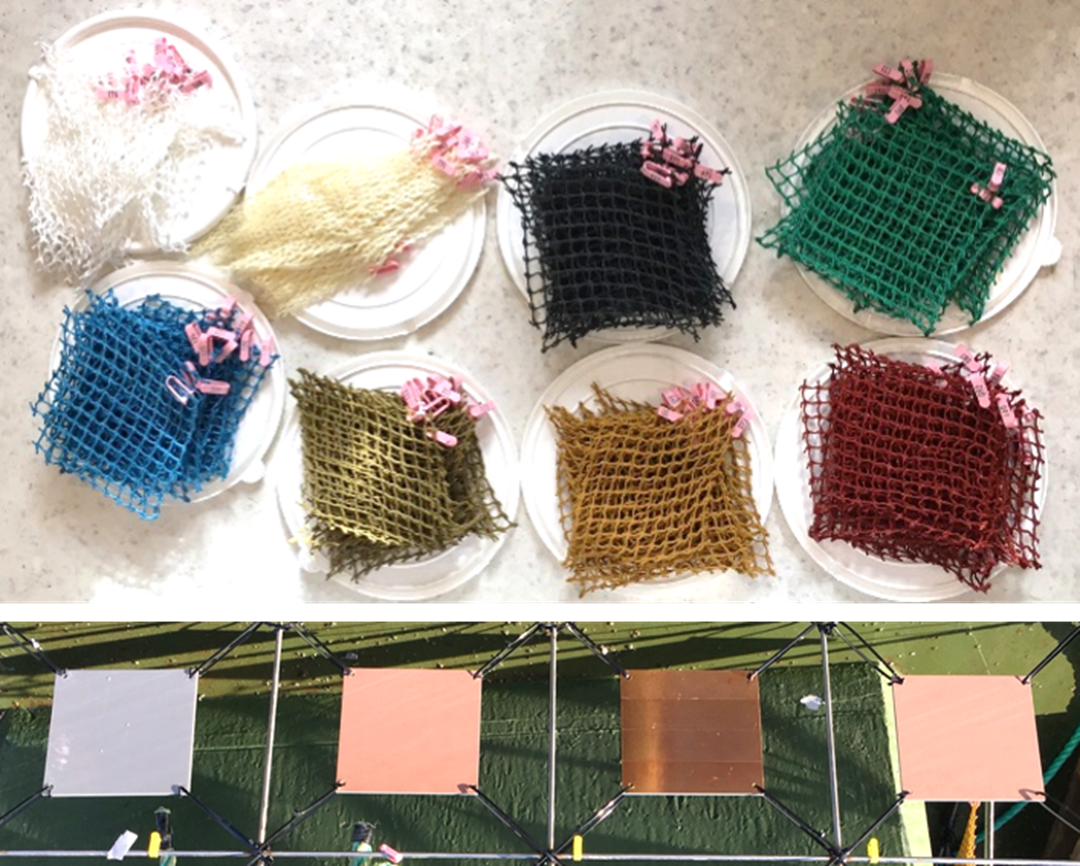Biofouling is a challenge in global sea-based salmon farming, especially on nets, but also on equipment such as sensors. Norway’s salmon-growing industry relies primarily on copper-based antifouling coatings. However, copper is an increasingly recognised environmental hazard, and there is a need to develop alternative antifouling products to prevent biofouling in marine aquaculture.
This study compared the efficacy of 6 novel antifouling coatings for fish farm nets (two with reduced copper content, three with alternative biocides and one biocide-free coating) against a popular commercial copper coating and blank samples. Field test results showed that the performance of one of the new coatings with lower copper content was more similar to the commercial copper control while the rest were colonised by biofouling faster and/or at higher abundances.
For sensors, a novel adhesive antifouling film with improved copper leaching control was tested in two concentrations against a commercial copper tape and an uncoated control. The novel antifouling films for sensors performed equally well as the commercial copper control, while indicating higher durability and similar functionality at lower copper concentration.
None of the tested products were able to prevent biofouling entirely, underlining the importance of the search for alternative and improved antifouling technologies
Project partners:
The project was financed by the Norwegian Seafood Research Fund (FHF) and conducted in cooperation with
- NetKem AS
- Brynsløkken AS
- Nitto Seimo (Japan)

